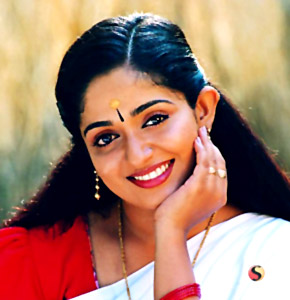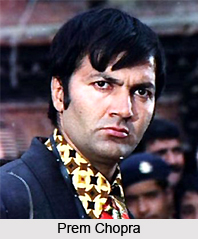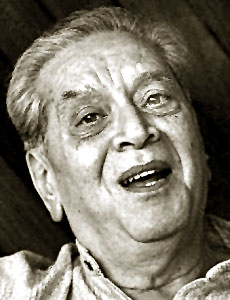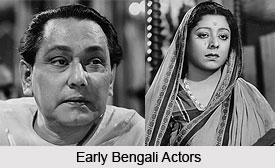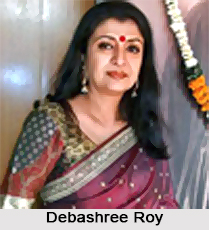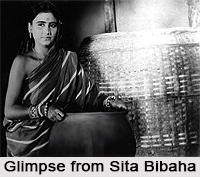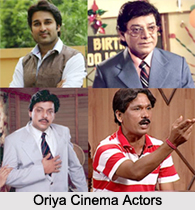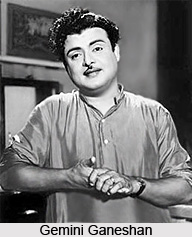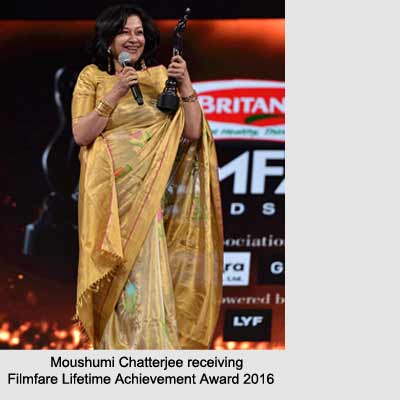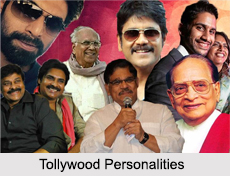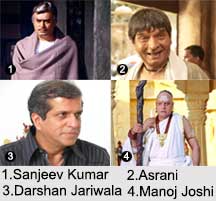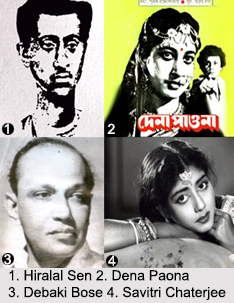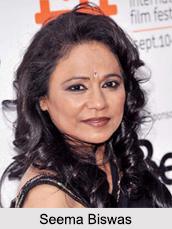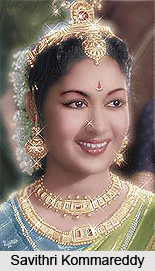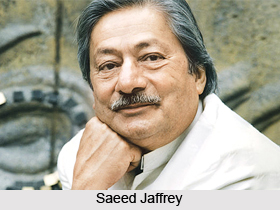 Saeed Jaffrey, OBE was an Indian-born British actor who was versatile and fluent in multiple languages. His multifarious caliber made him stride through radio, stage, television and over a hundred and fifty British, American and Indian movies, in a career spanning over 6 decades. With intense preparation and nuanced performances, Saaed Jaffrey breathed life into his smallest of roles. One of such performances of his, which also brought him international recognition, is that of the translator and guide Billy Fish in the film "The Man Who Would Be King". His voice was resonant and seductive, with a sharp ear for different accents and mimicry making him the natural choice for narrator of audio books. He voiced all 86 characters in the 1997 BBC World Service broadcast of Vikram Seth`s novel "A Suitable Boy". He made his foray into Bollywood with Satyajit Ray"s "Shatranj Ke Khilari" in 1977, his performance in the film also earning him the Filmfare Award for Best Supporting Actor. His cameo appearance as Lallan Miyan in "Chashme Buddoor" in 1981 garnered him popularity amongst the Indian audiences. He became a household name in the country with his portrayals in Raj Kapoor`s "Ram Teri Ganga Maili" in 1985 and "Henna" in 1991, both of them also bringing him nominations for the Filmfare Award for Best Supporting Actor.
Saeed Jaffrey, OBE was an Indian-born British actor who was versatile and fluent in multiple languages. His multifarious caliber made him stride through radio, stage, television and over a hundred and fifty British, American and Indian movies, in a career spanning over 6 decades. With intense preparation and nuanced performances, Saaed Jaffrey breathed life into his smallest of roles. One of such performances of his, which also brought him international recognition, is that of the translator and guide Billy Fish in the film "The Man Who Would Be King". His voice was resonant and seductive, with a sharp ear for different accents and mimicry making him the natural choice for narrator of audio books. He voiced all 86 characters in the 1997 BBC World Service broadcast of Vikram Seth`s novel "A Suitable Boy". He made his foray into Bollywood with Satyajit Ray"s "Shatranj Ke Khilari" in 1977, his performance in the film also earning him the Filmfare Award for Best Supporting Actor. His cameo appearance as Lallan Miyan in "Chashme Buddoor" in 1981 garnered him popularity amongst the Indian audiences. He became a household name in the country with his portrayals in Raj Kapoor`s "Ram Teri Ganga Maili" in 1985 and "Henna" in 1991, both of them also bringing him nominations for the Filmfare Award for Best Supporting Actor.
In Britain, his leading roles in movie "My Beautiful Laundrette" (1985) and television series "Tandoori Nights" (1985-1987) and "Little Napoleons" (1994) made him considered as the highest profile Asian actor of the 1980s and 1990s. He was the first Asian to receive British and Canadian film award nominations. In 1995, he was awarded an Order of the British Empire (OBE) for his services to drama, the first Asian to receive this honour. His memoirs "Saeed: An Actor`s Journey" were published in 1998. He died at a hospital in London on November 15, 2015, collapsing after a brain haemorrhage. In January 2016, he was posthumously conferred the Padma Shri, India"s fourth highest civilian honour by the Government of India, for his contribution to cinematic arts.
Early Life and Education of Saeed Jaffrey
Saeed Jaffrey was born into a Punjabi Muslim family on January 8, 1929, in Malerkotla, Punjab. In 1938, Jaffrey joined Minto Circle School at Aligarh Muslim University where he developed his talent for mimicry. In 1939, he played the role of Dara Shikoh in a school play on Aurangzeb, the last reigning Mughal Emperor. At Aligarh, Jaffrey also mastered the Urdu language.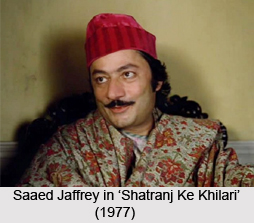 At the local cinemas there, he saw many Bollywood films and became a fan of Motilal, Prithviraj Kapoor, Noor Mohammed Charlie, Fearless Nadia, Kanan Devi and Durga Khote. In 1941 at Mussoorie, Jaffrey attended Wynberg Allen School where he picked up British-accented English and later St. George`s College. He performed in the annual school plays in both these places. At Mussoorie, Saeed and his brother Waheed would often sneak out at night to watch British and American films at the local theatres. In 1948, Jaffrey completed his Bachelors of Arts degree from Allahabad University and Masters of Arts in 1950. It was in Allahabad where Saeed learnt about Hindu religion and mythology for the first time. He was awarded his second post-graduate degree, in drama, by The Catholic University of America in 1957.
At the local cinemas there, he saw many Bollywood films and became a fan of Motilal, Prithviraj Kapoor, Noor Mohammed Charlie, Fearless Nadia, Kanan Devi and Durga Khote. In 1941 at Mussoorie, Jaffrey attended Wynberg Allen School where he picked up British-accented English and later St. George`s College. He performed in the annual school plays in both these places. At Mussoorie, Saeed and his brother Waheed would often sneak out at night to watch British and American films at the local theatres. In 1948, Jaffrey completed his Bachelors of Arts degree from Allahabad University and Masters of Arts in 1950. It was in Allahabad where Saeed learnt about Hindu religion and mythology for the first time. He was awarded his second post-graduate degree, in drama, by The Catholic University of America in 1957.
Career of Saeed Jaffrey
Saeed Jaffrey travelled to New Delhi in 1951, to try his luck as a cartoonist, writer or broadcaster. He successfully auditioned for an announcer at All India Radio and began his radio career as an English Announcer with the External Services of All India Radio, at a salary of Rs. 250 per month. In the initial period, Saeed spent his nights on the bench behind the office building unable to afford a place to stay and having no relatives in the city. Along with Frank Thakurdas and `Benji` Benegal, Saeed set up Unity Theatre, an English language repertory company at New Delhi in 1951. The first production was of Jean Cocteau`s play "The Eagle Has Two Heads", with Madhur Bahadur playing the role of the Queen`s Reader opposite Saeed as Azrael. Unity Theatre subsequently staged J. B. Priestley`s "Dangerous Corner", Dylan Thomas` "Under Milk Wood", Molière`s "The Bourgeois Gentleman", Christopher Fry`s "The Firstborn" and T. S. Eliot`s "The Cocktail Party". In late 1955, Saeed Jaffrey won a Fulbright scholarship to study drama in America the following year and moved to New York City.
In 1957, after graduating from Catholic University of America`s Department of Speech and Drama, Saeed acted in summer stock plays at St. Michael"s Playhouse in Winooski, Vermont. He played the lead in three of the plays: Sakini, the Okinawan interpreter in "The Teahouse of the August Moon", barrister Sir Wilfred Robarts in Agatha Christie`s "Witness for the Prosecution" and Voice of God, with Gino, in "The Little World of Don Camillo". In September 1957, he returned to Washington, D.C. and rehearsed for the 1957-58 season with the National Players, a professional touring company that performed classical plays all over America. He was the first Indian to take Shakespearean plays on a tour of the United States. He was cast in the role of Friar Laurence in "Romeo and Juliet". In 1958, Saeed joined Lee Strasberg`s Actors Studio and played the lead in an off-Broadway production of Federico GarcÃa Lorca`s "Blood Wedding". At that time, he met Ismail Merchant who had recently arrived from Bombay to attend New York University Stern School of Business. Merchant approached Saeed with a proposal to put on a Broadway production of "The Little Clay Cart". He also provided the narration for Merchant`s Oscar-nominated short film "The Creation of Woman". In 1959, James Ivory, then a budding film maker from California, approached Saeed to provide the narration for his short film about Indian miniature painting, "The Sword and the Flute".
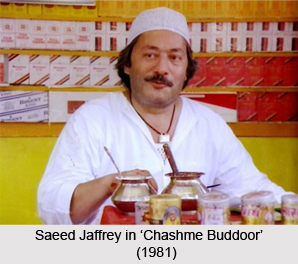 In 1961, Saeed joined The New York Times Company`s radio station WQXR-FM where his first broadcast program was "Reflections of India with Saeed Jaffrey". He also continued acting on stage, performing in plays like Rabindranath Tagore`s "The King of the Dark Chamber", stage adaptation of E. M. Forster`s novel "A Passage to India" in the role of Professor Godbole at Broadway"s Ambassador Theatre and Rolf Forsberg`s off-Broadway production of "A Tenth of an Inch Makes The Difference". In 1965, he was offered the role of the Hindu God Brahma in "Kindly Monkeys" at the Arts Theatre, London. Favourable reviews brought an offer from the BBC World Service to write, act and narrate scripts in Urdu and Hindi. Jaffrey played the small part of barrister Hamidullah in the BBC television adaptation of "A Passage to India". In 1966, he recorded a narration of the Kama Sutra titled "The Art of Love", for Vanguard Records. It was listed by the Time magazine in February 1967, as "one of the five best spoken word records ever made". Saeed was given the opportunity to shoot in India for the next Ismail Merchant-James Ivory film "The Guru" that released in 1969. He became the first Indian in a starring role in London`s West End theatre, when he played a Pakistani photographer in "On A Foggy Day". In the 1980s, he got substantial roles on British television in colonial dramas like "The Jewel in the Crown" and "The Far Pavilions", also the British Indian sitcom "Tandoori Nights" (1985-1987), "Little Napoleons" (1994) and the ITV soap "Coronation Street".
In 1961, Saeed joined The New York Times Company`s radio station WQXR-FM where his first broadcast program was "Reflections of India with Saeed Jaffrey". He also continued acting on stage, performing in plays like Rabindranath Tagore`s "The King of the Dark Chamber", stage adaptation of E. M. Forster`s novel "A Passage to India" in the role of Professor Godbole at Broadway"s Ambassador Theatre and Rolf Forsberg`s off-Broadway production of "A Tenth of an Inch Makes The Difference". In 1965, he was offered the role of the Hindu God Brahma in "Kindly Monkeys" at the Arts Theatre, London. Favourable reviews brought an offer from the BBC World Service to write, act and narrate scripts in Urdu and Hindi. Jaffrey played the small part of barrister Hamidullah in the BBC television adaptation of "A Passage to India". In 1966, he recorded a narration of the Kama Sutra titled "The Art of Love", for Vanguard Records. It was listed by the Time magazine in February 1967, as "one of the five best spoken word records ever made". Saeed was given the opportunity to shoot in India for the next Ismail Merchant-James Ivory film "The Guru" that released in 1969. He became the first Indian in a starring role in London`s West End theatre, when he played a Pakistani photographer in "On A Foggy Day". In the 1980s, he got substantial roles on British television in colonial dramas like "The Jewel in the Crown" and "The Far Pavilions", also the British Indian sitcom "Tandoori Nights" (1985-1987), "Little Napoleons" (1994) and the ITV soap "Coronation Street".
Apart from radio, theatre and television, Saeed Jaffrey"s film career encompasses work with actors like Sean Connery, Pierce Brosnan and Michael Caine. He worked with film makers such as Satyajit Ray, James Ivory and Richard Attenborough. His films include "The Wilby Conspiracy" (1975), "The Man Who Would Be King" (1975), "Shatranj Ke Khilari" (1977), "Sphinx" (1981), "Gandhi" (1982), "The Far Pavilions" (1984), "The Razor`s Edge" (1984) and "My Beautiful Laundrette" (1985).
Personal Life of Saeed Jaffrey
Saeed Jaffrey married actress Madhur Jaffrey in late 50s at Washington, D.C. and together they had 3 children, Zia, Meera and Sakina. Sakina Jaffrey is also an actress and acted alongside her father in the Canadian film "Masala" (1992). Their marriage dissolved in 1966. In 1980, Saeed married Jennifer Sorrell, an agent and freelance casting director.







